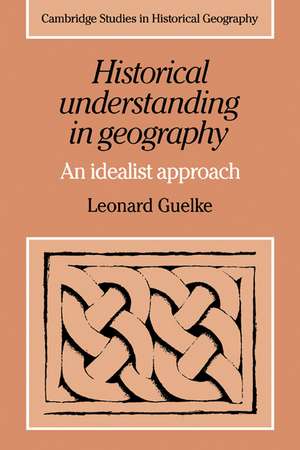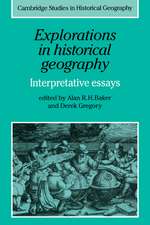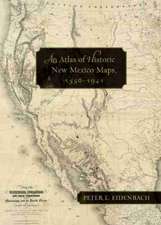Historical Understanding in Geography: An Idealist Approach: Cambridge Studies in Historical Geography, cartea 3
Autor Leonard T. Guelkeen Limba Engleză Paperback – 16 feb 2011
Din seria Cambridge Studies in Historical Geography
-
 Preț: 273.22 lei
Preț: 273.22 lei -
 Preț: 244.49 lei
Preț: 244.49 lei -
 Preț: 355.39 lei
Preț: 355.39 lei -
 Preț: 338.70 lei
Preț: 338.70 lei -
 Preț: 323.05 lei
Preț: 323.05 lei -
 Preț: 305.12 lei
Preț: 305.12 lei -
 Preț: 286.13 lei
Preț: 286.13 lei -
 Preț: 282.48 lei
Preț: 282.48 lei -
 Preț: 289.19 lei
Preț: 289.19 lei -
 Preț: 407.47 lei
Preț: 407.47 lei -
 Preț: 280.53 lei
Preț: 280.53 lei -
 Preț: 454.76 lei
Preț: 454.76 lei -
 Preț: 340.33 lei
Preț: 340.33 lei -
 Preț: 404.43 lei
Preț: 404.43 lei -
 Preț: 464.60 lei
Preț: 464.60 lei -
 Preț: 436.68 lei
Preț: 436.68 lei -
 Preț: 405.07 lei
Preț: 405.07 lei -
 Preț: 324.15 lei
Preț: 324.15 lei -
 Preț: 317.29 lei
Preț: 317.29 lei -
 Preț: 406.33 lei
Preț: 406.33 lei - 5%
 Preț: 405.43 lei
Preț: 405.43 lei -
 Preț: 288.11 lei
Preț: 288.11 lei -
 Preț: 387.35 lei
Preț: 387.35 lei -
 Preț: 321.52 lei
Preț: 321.52 lei -
 Preț: 349.62 lei
Preț: 349.62 lei -
 Preț: 434.01 lei
Preț: 434.01 lei -
 Preț: 316.90 lei
Preț: 316.90 lei -
 Preț: 452.26 lei
Preț: 452.26 lei -
 Preț: 401.28 lei
Preț: 401.28 lei -
 Preț: 338.33 lei
Preț: 338.33 lei
Preț: 189.72 lei
Nou
Puncte Express: 285
Preț estimativ în valută:
36.31€ • 39.20$ • 30.45£
36.31€ • 39.20$ • 30.45£
Carte tipărită la comandă
Livrare economică 19 aprilie-03 mai
Preluare comenzi: 021 569.72.76
Specificații
ISBN-13: 9780521180177
ISBN-10: 0521180171
Pagini: 120
Dimensiuni: 152 x 229 x 7 mm
Greutate: 0.19 kg
Editura: Cambridge University Press
Colecția Cambridge University Press
Seria Cambridge Studies in Historical Geography
Locul publicării:Cambridge, United Kingdom
ISBN-10: 0521180171
Pagini: 120
Dimensiuni: 152 x 229 x 7 mm
Greutate: 0.19 kg
Editura: Cambridge University Press
Colecția Cambridge University Press
Seria Cambridge Studies in Historical Geography
Locul publicării:Cambridge, United Kingdom
Cuprins
Preface; Introduction; 1. Inadequate concepts of history in historical geography; 2. Rational understanding; 3. Objections to the concept of rational understanding; 4. Historical geography as science; 5. Idealist historical geography: an example; 6. A concluding comment; Select bibliography of philosophical and methodological topics; Index.
Descriere
This 1982 work conceives of historical geography as a field in its own right and as the foundation of a revitalized traditional, empirical human geography.









